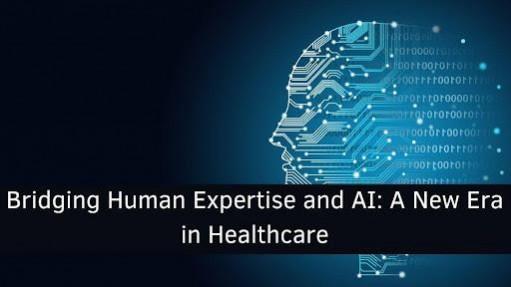
In the era of digital transformation, the integration of artificial intelligence (AI) with human expertise is revolutionizing the healthcare industry, improving diagnostics, treatment outcomes, and operational efficiency. This transformation is the focus of research by Madhu Sudhan Nanda, who explores the evolving relationship between AI and medical professionals. By leveraging cloud-based AI systems, healthcare providers are enhancing patient care, reducing diagnostic errors, and expanding access to medical services.
Cloud-Enabled AI: The Backbone of Healthcare Transformation
Cloud-based AI is revolutionizing healthcare by enabling efficient management of vast patient data. These platforms support real-time analysis of medical records, fostering seamless collaboration between AI and healthcare professionals. The integration enhances system reliability, reduces costs, and optimizes resource allocation. By leveraging cloud infrastructure, healthcare institutions can improve decision-making, streamline operations, and enhance patient care. This transformation ensures more accurate diagnostics, faster treatment planning, and better overall outcomes, making cloud-enabled AI the backbone of modern healthcare innovation.
Intelligent Diagnostics: AI-Assisted Precision
AI-driven diagnostic tools are achieving unprecedented accuracy levels across various medical fields. By analyzing complex datasets, AI systems can detect diseases at earlier stages than traditional methods. For instance, AI-assisted imaging tools have demonstrated high precision in identifying conditions such as diabetic retinopathy and pulmonary nodules. These advancements not only enhance diagnostic accuracy but also reduce the workload of medical professionals, allowing them to focus on critical cases that require human expertise.
Telemedicine: Expanding Access and Efficiency
AI has revolutionized telemedicine by enhancing efficiency and accessibility. With AI-driven predictive scaling and intelligent resource management, healthcare institutions have improved network stability and reduced system response times. These advancements have lowered appointment cancellations, boosted patient satisfaction, and expanded access to care, particularly for underserved populations. As a result, telemedicine is now more reliable and effective, transforming remote healthcare delivery on a global scale.
Ethical Considerations: Balancing Automation with Human Oversight
The integration of AI in healthcare presents ethical challenges that necessitate strong human oversight. Healthcare professionals play a crucial role in evaluating AI-generated recommendations, ensuring that medical decisions align with ethical standards and patient-specific needs. Research indicates that human intervention remains essential in refining AI outputs, mitigating risks, and maintaining patient trust in automated systems.
The Societal Impact of AI in Healthcare
The future of AI in healthcare depends on continuous learning and infrastructure development. Organizations investing in AI training see improved efficiency and better patient outcomes. As AI becomes integral to healthcare, professionals are embracing cultural shifts that encourage collaboration between technology and human expertise. Rather than replacing medical professionals, AI enhances decision-making, streamlines workflows, and improves diagnostics. Ongoing education ensures healthcare providers stay adept at leveraging AI's potential, fostering innovation and improved care. By integrating AI responsibly, the industry moves toward a future where human intelligence and machine learning work in harmony to enhance patient treatment and outcomes.
A Future of Continuous Learning and Innovation
The future of AI in healthcare depends on continuous learning and collaboration. AI enhances decision-making, streamlines workflows, and improves diagnostics, complementing rather than replacing medical professionals. Ongoing education helps providers maximize AI's potential, driving innovation and better care. Responsible AI integration fosters a future where human intelligence and technology work together to improve patient outcomes.
In conclusion, the fusion of AI and human intelligence is revolutionizing healthcare, making it more efficient, accurate, and accessible. As highlighted in the research by Madhu Sudhan Nanda, this collaboration enhances diagnostic precision, streamlines operations, and broadens healthcare reach. Moving forward, the key to success lies in maintaining a balanced integration of AI-driven automation and human oversight, ensuring that technological advancements continue to serve the fundamental mission of healthcare: improving patient lives.

















